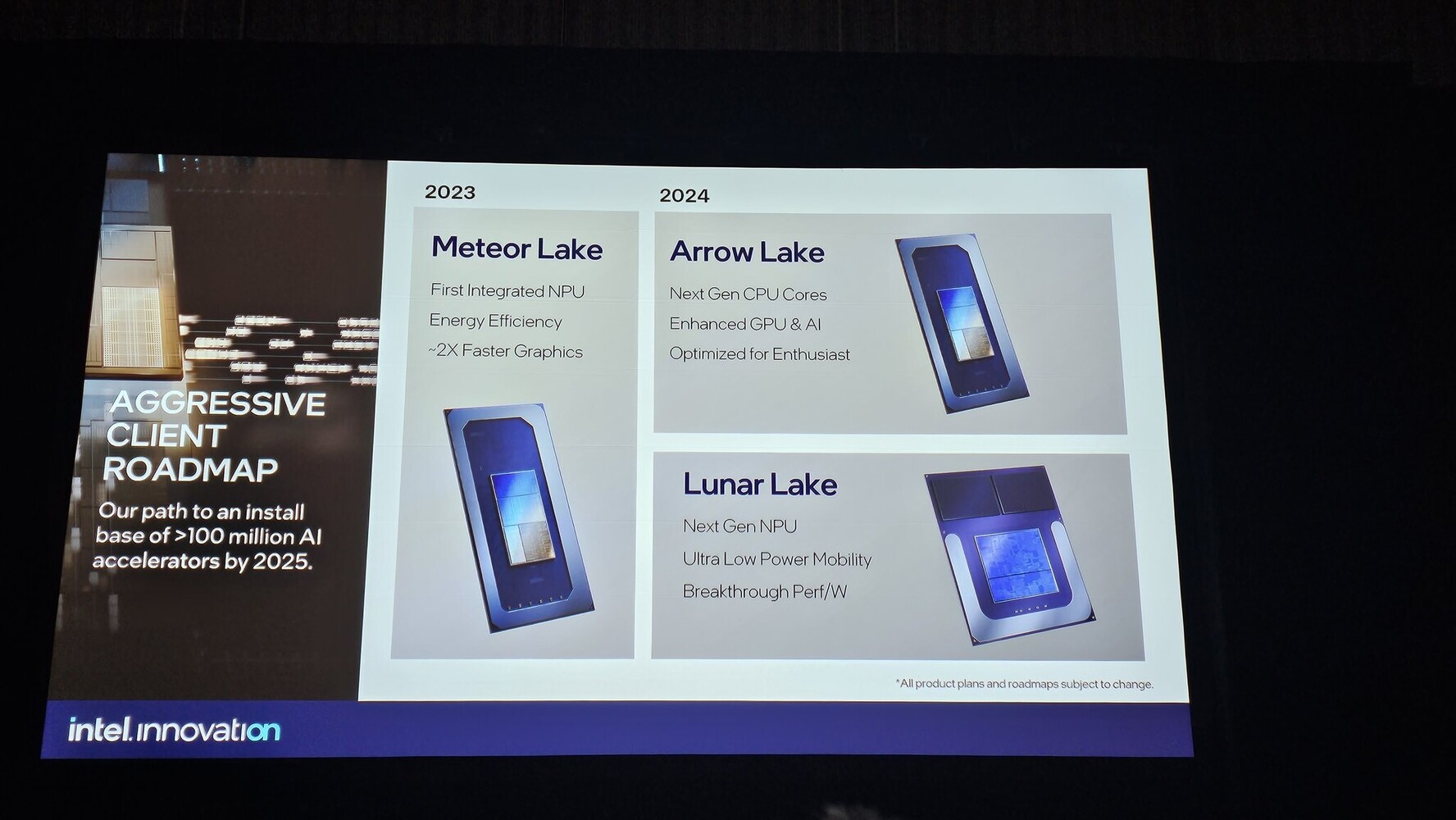My two best guesses for why TSMC N3B is used for the compute tile:
-
The Compute Tile has the x86 Cores, NPU, and iGPU. Because of this, 20A couldn’t be used. It could’ve been either Intel 3, N3B, or wait for 18A. N3B was likely the best choice
-
ARL and LNL were developed in Tandem, one using internal foundries, the other external, as a post-10nm risk mitigation. Development for these CPUs likely began somewhere around 2020.
- Intel doesn’t have enough supply for themselves and clients for leading edge nodes. Intel makes more money if they let IFS clients to buy their nodes and Intel themself get nodes from TSMC
No one really cares about Intel’s nodes pre-18A, and that theory doesn’t work regardless.
Also, Intel needs to prove the node in their own products before others will bite.
As Intel themselves confirmed, 18A lead product(E core Xeon and Panther Lake) won’t be out until mid to late 2025. So either they keep using N3 and launch LNL in late 2024 or delay it by a year with a risk of even further delays and have it launch alongside with M4, QC’s second gen X chips, Refreshed Zen 5 APUs , etc. 20A is probably similar to Intel 4 in that it’s not really a complete node.
Also they also have to use all the TSMC N3 allocation they bought up for something. Since Battlemage is rumored to make use of N4, Celestial should be 2 years after BMG per usual GPU cadence
So there was a somewhat similar post a year ago where an intel engineer commented on why they are using tsmc. Essentially, and I’m really paraphrasing, tsmc was better at gpus because they were more efficient at wide architectures vs intel which is better at narrow/super high clock architectures. This was all before 18a though obviously.
N3B is flat out better than anything Intel has in the same time frame. It’s not like the GPU guided the decision.
While it looks weird to see this happen today, this is the approach Intel should’ve been taken years ago until their fabs were back to being competitive, even Rocket Lake got screwed due to 10nm issues and that was just 2 years ago.
This also explains the rumor/leak that Intel had an N3B contract it was for Lunar Lake.
Seems like MTL’s low power island with 2 low power E-cores changes with LNL and now all (4) E-cores are on the SoC tile.
Also some side notes, base of 16GB of RAM, take note Apple. Features Intel Intelligent display, the feature shown off months ago that turns your screen off when you arent using your laptop. Same memory speed at the Snapdragon X. Wifi 7. Display pipes reduced from 4 to 3.
-
good to see battlemage still in plans.
good to see battlemage still in plans.
Lunar Lake-MX looks like a direct response to Apple’s M Series/Qualcomm’s X Elite
Great to see Intel design a dedicated die for the 8-30W TDP market instead of just reusing their 15-28W TDP design
Although still no direct response to Apple’s M Pro/M Max with huge iGPUs yet from Intel (AMD’s Strix Halo is supposedly coming in 2025)
Well, to be fair these are not responses to the Pro/Max M3 skus not just in terms of iGPUs, but also in core count.

